Foreword
Societies based on democracy and the market economy are founded on the belief in the individual who is capable and willing to make choices and decisions that are rational from their point of view and based on information that is available at any given time. The legitimacy of society, of public power and thus of representative democracy derives from the fact that members of society are consciously ready to subject a certain part of their own freedom and power to common ground rules.
This memo, Data, power and democracy, examines the different ways in which the transformation brought about by digitalisation and in particular digital media environments influences – in fact disrupts – the traditional power relations of liberal democracies. In the memorandum, Henrik Rydenfelt, Docent of Practical Philosophy and Media and Communication Studies at the University of Helsinki, explores the ongoing societal-technological transformation from the perspectives of classic social scientific theories of power.
We are living in the midst of a transformation marked by digitalisation, an explosion in the volume and use of data and rapid change in our information environment. The memo shows that this transformation compels us to address fundamental questions about democracy and individual freedom. At the same time, it provides food for thought on all the ways in which technological developments are challenging democracy to reform and how we could improve the conditions for individuals participation.
The memo builds on the the perspectives provided by Sitra’s previous publications Mediavälitteinen yhteiskunnallinen vaikuttaminen – Murros ja tulevaisuus (“Media-mediated societal influence – a transition and the future”) and Tracking Digipower – How data can be used for influencing decision-makers and steering the world. It also provides a theoretical context for examining technology, democracy and digital power. In terms of democracy and inclusion, the transformation is having a pervasive impact on many fields, ranging from transnational and national decision-making and regulation to our everyday lives that are quickly becoming increasingly digital. Therefore, recognising and understanding the different dimensions of digital power is important for ordinary people, decision-makers, companies and organisations.
The memo was written as part of Sitra’s Digital Power and Democracy project. The project produces information and insights on new forms of digital power and enables people to make a difference in matters that are important to them.
Veera Heinonen
Director, Democracy and participation, Sitra
Jukka Vahti
Project Director, Digital power and democracy, Sitra
Summary
What are the challenges and opportunities of the digital media environment for Western societies? What might the future of democracy be in the age of data?
This memo addresses these questions through the concept of power. Power is understood as the ability to make others act in ways that serve the purposes of those who exercise it. This ability is often based on data, information, knowledge, ownership and economic capital or political status.
By distinguishing between forms of power that are based on knowledge, information and data, the memo gives a new perspective on the changes brought about by digital and social media. The role of traditional information gatekeepers has weakened, and knowledge and information power are diverging: the ability to control information is not centralised in institutions that produce and transmit knowledge. The rise of data power is reflected in the influence wielded by social media platforms and services. Societal debate, individuals and groups have to adapt to the structures provided by these services.
The new information environment and media diversity challenge the democratic ideals of rational and informed debate and consensus as the basis for societal decision-making. The memo outlines a partly alternative vision offered by the philosophical tradition of pragmatism. Pragmatism offers a vision of societal decision-making through a self-revising process resembling scientific inquiry in which both the shared goals and the means to achieve them are tested in social practice.
Modern digital technology could provide this kind of experimental democracy with unprecedented opportunities. Under what conditions could societal decision-making based on the collection and use of data be implemented?
Western societies are characterised by the idea of liberalism, according to which the legitimacy of the use of power derives from the free consent of individuals. This idea underlies both the freedom of the markets and the legitimacy of societal power. This memo introduces and critically assesses the concept of a social data contract, in which individuals make data generated through their actions available to public administration, which in turn would enable public governance to better identify problems and devise solutions.
1. Introduction
The development of digital communications technologies has led to a change in the information environment, often called a media revolution. But what exactly has been transformed – and why?
Digital technology enables the collection and use of data on a massive scale. The data generated by people’s activities is primarily accumulated by a few social media and digital technology giants. What are the societal challenges and opportunities that digital communication technologies and data-driven decision-making bring to Western societies?
The aim of this memo is to outline, through the concept of power, the change in media and society that is generated by digital technologies and the use of data. It examines digital media and the use of data in the light of fundamental assumptions about the market economy and the public exercise of power. It offers new perspectives on how a democratic society might respond to the change in the information environment and the problems and challenges created by data-based power.
The examination proceeds through a conceptual analysis, argumentation and philosophical inquiry. It is not intended to provide a detailed picture about disinformation and influencing through information in digital media or to assess in detail the use of algorithms, artificial intelligence and data in societal decision-making. There are many studies and reports available on these themes and their development. Instead, the aim is to look at broader societal developments and the opportunities and threats generated by digital communication technologies to a Western, liberal and democratic society.
The following, second section introduces the concept of power, which is the basis for the examination, as well as theoretical perspectives on the foundations and structures of power, questions of legitimacy and ethics of the exercise of power and the relationship between freedom and power. In the third section, forms of power central to digital media are discussed by distinguishing the concepts of knowledge power, information power and data power and by examining the power of algorithmic systems.
The fourth section considers the exploitation of data and related regulation in the context of free markets. Current regulation related to data and information is based on an individual’s choice and the right called privacy; both are reviewed in the light of questions related to the legitimacy of and justification for the exercise of power.
In the fifth and final section, the changes generated by digital media and data power are analysed in relation to public power and ideas regarding its legitimacy and justification. This section presents and critically assesses the concept of a social data contract, in which individuals provide data generated through their activities to public administration, to serve as a basis for societal decision-making.
For discussion and comments, I am indebted to Lauri Haapanen, Jesse Haapoja, Eero Hyvönen, Matti Häyry, Elisa Juholin, Tuukka Lehtiniemi, Väinö Lithovius, Mervi Pantti, Sami Pihlström, Jooseppi Räikkönen, Johanna Suur-Uski, Samuel Tammekann and Sitra’s commentators.
2. What is power?
Power is the ability to make others act in a manner that serves the purposes of those who exercise power. Among people, power is often based on the ability to use or shape the aspirations of others. The legitimacy of exercising power can be examined in terms of the complex relationship between power and freedom.
Definition of power
When two people are preparing dinner together, we do not immediately think that the situation involves the exercise of power. But what if one of them is a chef who receives financial compensation for teaching their customer the secrets of cooking? Or perhaps it’s a couple, one of whom participates unwillingly in preparing dinner, fearing the end of the relationship – or even the violent reaction of their partner?
In social sciences and philosophy, the concept of power is often used to analyse different social and societal situations, though there is no consensus regarding the nature or definition of power.
According to many classical definitions of power, power is the ability to bring about an outcome. In the 17th century, the English philosopher Thomas Hobbes wrote that the power of a person “(to take it Universally,) is his present means to obtain some future apparent Good” (Hobbes 1651, 92).
Hobbes’ description, however, does not include the characteristic of power that emerges in the thinking of the 20th century’s key analyser of power and the exercise of power, Michel Foucault. In his writings, Foucault did not offer a definition of power as such, but he emphasised that “power” refers to the relations between parties within a whole (Foucault 1982, 786). What can be considered one of Foucault’s key observations is that in certain situations, the “other” party may be the individual exercising power. Power is relational: when one person has power, another is the object of power.
The relational nature of power is summarised in political scientist Robert Dahl’s characterisation of power, according to which A has power over B insofar as A can get B to do something B would otherwise not do (Dahl 1957, 202–3). “Doing” also includes “not doing”: A has power over B insofar as A can get B not to do something B would otherwise do.
However, Dahl’s view faces another problem. Climate change, a steep mountainside or a threatening meteorite may well make us do something that we would otherwise not do. We do not usually consider them to be exercising power. As Hobbes proposed, power is linked to goals – which meteorites do not have.
A third influential definition of power was put forward by the sociologist Max Weber, in whose view power is the possibility that one party in a social relationship is in a position to carry out their own will despite resistance, regardless of the basis on which this possibility rests (Weber 1922, 28). Weber’s definition includes both the relational nature of power and the link to goals, though it considers power to be a series of opportunities to achieve one’s goals, rather than an ability to do so.
The key characteristics of power presented above can be summarised as a definition that avoids the problems of competing views:
A has power over B insofar that A has the ability to get B to act in a manner that is in line with A’s goals.
Power, according to this definition, is about an ability that is relational and linked to the goals of the person who exercises power. From this definition, it follows that although anything can be an object of power, power can be held only by those who have goals. Doing is here understood broadly: it can also mean not doing something.
Foundations and structures of power
Power is an ability that does not emerge from nothing. It is based on some factor that gives the one wielding power the ability to get another person to act in a manner that is favourable to the goals of the former.
In Western societies, the basis of power over inanimate objects is often ownership, which makes it possible to use objects and animals in a manner that suits the owner’s goals. In our social order, the right of ownership is also extended to many animals, though animals, too, have drives and purposes and our exercise of power may be based on influencing them.
Instead, power in relation to other people is typically linked to the aspirations of the people who are objects of power. The basis of power lies in some other ability that enables the aspirations of others to be turned into the service of the goals of those who exercise power.
The fearful spouse in the dinner example aspires to avoid trouble or even physical injury. The spouse that exercises power, on the other hand, has the ability to blackmail the other partner by ending the relationship or resorting to outright violence. The professional chef has financial aspirations that the customer can make use of as they have the financial ability – money – to acquire the chef’s culinary services. The power setting is not unilateral: the chef’s exceptional culinary skills turn into financial benefit due to the customer’s culinary desires.
There is also another option. Power may be based on the ability to change others’ goals so that they coincide with or otherwise serve the goals of the one wielding power.
In our example, perhaps the overbearing charm, eloquence and charisma of the cooking partner have led the other person to think that cooking in precisely this company is worth pursuing. Or perhaps the other party thinks so as a result of the cooking partner’s lying, long-term manipulation or outright brainwashing.
The foundations of power do not come from nothing. They rely on biological, cultural, societal, social and financial factors and practices. The typical human tendency to avoid pain, injury and death and, as a result, violence has a biological basis. The right of ownership is a societal, social and judicial practice, without which the possibility to use objects and things would be completely transformed – or perhaps disappear entirely. Thus, in exploring the bases of power it makes sense to talk about structures of power, which enable certain forms of exercising power while excluding others.
Power and freedom
It is tempting to think that power and freedom would be opposites: the one who is the object of power is not free to act in the way they want. The element of coercion is often associated with being the object of power. Fear of physical or mental violence forces the object of power to act differently than they would initially want.
Our examples show, however, that the juxtaposition is not always this evident. When the chef offers their services for financial remuneration, they seem to do so freely, at least under certain conditions. Activities in which an individual voluntarily spends time with another person due to their charisma and eloquence – or because the individual considers this the most meaningful way to get a tasty dinner – can also be considered free.
The question of volition quickly becomes complex. Could the use of charisma and eloquence lead to a situation where the other person is no longer capable of deciding for themselves? What if the chef does not have a choice if they want to eat?
The question of power and freedom is thus linked to the fundamental question of free will. What is free will – and does it exist?
In everyday thinking, we often think of freedom as the ability to make choices between different alternatives in each moment. An example that is descriptive of this conception is a scene from Finnish comedy where the main character, Uuno Turhapuro, lies on a couch and marvels at his ability to wiggle his toes at will. He tells his toe to move – and it does.
But does he make his choice at that moment? As literature on free will frequently points out, we act on our beliefs and aspirations. Even if a choice is made at a particular moment, the decision is the product of pre-existing habits of action. The toe movement is the result of the character’s deeply rooted predilection to lie around and spend his time on idle philosophical musings.
If all our actions are guided by our beliefs and aspirations like this, what would be free about our actions? In philosophy, attempts have been made to answer this question by differentiating between habits of action produced by external factors and our internal, “own”.
For Immanuel Kant, an individual can act freely, literally in the sense of autonomy, by making a law for themselves. This moral law Kant called the categorical imperative. This derives from the individual’s reason; hence Kant claimed it applies to every human being with reason (Kant 1785, 421).
Why would the categorical imperative or any other rule be an individual’s intrinsic law rather than the result of cultural development and of the biological foundation of human actions?
A more nuanced idea of freedom is offered by the tradition of philosophical pragmatism. It holds that an individual’s actions are based on biologically, socially and culturally developed habits of action. However, we are capable of amending our habits and learning new ones – as well as learning new ways to learn. Freedom – to the extent that it exists – does not consist of choosing between individual actions or different alternatives. Rather, it is an opportunity to remedy, change and improve our ways of acting.
From this perspective, it follows that we cannot consider our own or others’ actions to be free simply by looking at their content or suitability to a particular way of acting, such as Kant’s categorical imperative. The freedom of individuals and groups may be greater or smaller, increasing or decreasing. This subtle and context-specific nature of freedom is significant especially when assessing the legitimacy of the exercise of power.
Power, justification and legitimacy
The above definition of power and the ideas about the foundations and structures of power are not normative: they do not define what kinds of exercise, forms and structures of power there should be in our societies.
Of course, identifying power and its foundations and structures enables us to evaluate them critically. But there is no single clear starting point for a critique of power and the use of power. The key theoreticians of power that are often referred to in research – such as Friedrich Nietzsche or Michel Foucault – do not provide a benchmark for or alternative to power (see Rydenfelt 2013.). Instead, power is thought of as ubiquitous: some power relations always prevail.
Below, power and power relations are evaluated critically by looking into the ethics of the exercise of power: when is it ethically right to exercise power? This question can be broken down into two dimensions.
According to the above definition, power is an ability that is used to pursue something. We can thus first of all ask whether the goals of the exercise of power are ethically good or permissible.
An expert in the media exercises power when influencing opinions and views in a manner that suits the expert’s goals. Below, this form of power will be called information power. From our point of view, the goals of the expert may be good and right. For instance, the goal of the expert may be that care and treatment of older people are of high quality and sustainable. If we share this goal or otherwise consider it right or acceptable, the exercise of power to achieve it is, from our perspective, in this regard justifiable, right or at least permissible.
Even in connection with a good or permissible goal, power can be abused. This entails another power-related ethical question, associated with the legitimacy of the exercise of power. The good care of older people may be a goal worth pursuing, but enslaving younger people to arrange this care or to cover its costs can hardly be considered legitimate.
Why is this? In Western societies, we are used to the notion that the exercise of power is legitimate if it is acceptable or can be accepted from the point of view of those subject to it. Few people would accept the idea of one’s own enslavement or that of others even for an important goal like the care of older people.
For an expert in the media, the situation may be different. When the expert exercises their information power on TV, we typically accept that kind of exercise of power: we hope to be able to form a better picture of the way to achieve the shared goal. We consider the interviewee an expert who offers information that is worth receiving.
But what if we accept being subject to the exercise of power because we have been manipulated into believing that the person in the media is an expert? Is a choice made by us due to our foolishness or credulity a solid foundation for the legitimacy of the exercise of power? What if our attitude towards the exercise of power is one of indifference?
For the legitimacy of the exercise of power, consent is often required to be free, not coerced. This links the problem of legitimacy with the complex relationship between power and freedom, described above; our acceptance can be interpreted to be more or less free in different situations.
On the other hand, in many cases, the exercise of power is considered legitimate even in the absence of the consent of those subjected to it. As individuals and as a society, we exercise power in this way concerning children and adults deemed incapable of independent decision-making, for instance, in the name of their best interests. When and to what extent can the exercise of power be justified solely by referring to an individual’s best interests or to collective interests?
The evaluation of both the goals of the exercise of power and its legitimacy requires a closer examination of the goals, acceptance or lack thereof in the context where power is exercised.
In the following sections, power in digital media is examined by distinguishing different forms of power and its exercise as well as related ethical and societal questions in our prevailing context – liberal society.
3. Power and digital media
Digital media has shaped power and how it is exercised. Power linked to information has become dispersed and separated from the production and transmission of knowledge. Data has become a key source of power. Algorithmic systems have become exercisers of power alongside humans.
Knowledge and information power
What does power in digital media mean? What changes to power and its foundations and structures have the emergence and rise of digital and social media brought about?
It is fruitful to approach these questions by distinguishing between three different forms of power that are key in digital media, according to their bases.
“For knowledge itself is a power,” said English philosopher and statesman Francis Bacon (Bacon 1597, 71). Although the exact meaning of Bacon’s statement is somewhat unclear, it is evident that knowledge provides the ability to pursue one’s goals more efficiently. The basis of knowledge power is knowledge itself: those who have knowledge can use it to achieve their goals.
On the other hand, information power is linked to the ability to influence the decisions of others. People make their conscious decisions on the basis of information. Power to influence those decisions in accordance with their own goals lies with those who regulate information and are capable of influencing whether the information available is true or untrue.
Information power has long been a fruitful starting point for media research. Media not only transmits information but also depicts what kind of life is normal or ideal, worth pursuing or, on the whole, possible to achieve. In this way, media content influences our conceptions about how things are and how they should be.
The rise of digital and social media has led to a transformation of knowledge and information power, in which we can distinguish certain key developments.
The first is the redistribution of information power. Content offered by social media has risen on a par with legacy media or even surpassed it. Thanks to digital media technology, information power can be exercised and increased more freely than before.
It is conceivable that information power is now more evenly distributed. Instead of a few news broadcasters, TV channels and newspapers, all users of social media have some information power: everyone can influence the content encountered by others.
However, information power is not distributed equally. Researchers have frequently pointed out that new gatekeepers have emerged alongside the traditional ones (Navarro et al. 2020). Politicians, civil society actors, celebrities and artists use social media to spread certain messages and points of view among the general public. With their large follower groups, they can control the visibility of various issues and discussions and steer the conceptions people form about them.
Secondly, the redistribution of information power changes the relationship between knowledge power and information power. Although the relationship has always been tense, in the media environment of previous decades, information power was often exercised by experts, researchers and journalists who had specialised in the topic. Today, information power is no longer concentrated similarly on institutions that focus on producing and transmitting knowledge. Knowledge power and information power are drifting into different hands. This partly explains phenomena such as the increasing concern in recent years about disinformation, misinformation and actual propaganda becoming more common (see Horowitz et al. 2022).
Thirdly, social media and its algorithms also act as structures of power. They enable and exclude ways of exercising and accumulating information and knowledge power and thus also influence the shaping of political and economic power. All those involved – individuals, organisations and societies – have to adapt to the structures offered by them to pursue their own goals. Research has drawn attention to the new types of media content as well as on the rhetorical and emotional practices with which current information influencers reach their audiences (see Lehto 2021).
Alongside the changes in knowledge and information power, the era of digital media is also characterised by another significant development: the explosion of data power.
Datafication
Data power is rooted in a development called datafication: more and more of our activities and the spheres of life are transformed and are transformable into data.
Datafication typically emerges with the development of automation combined with digital technology. It is not limited to digital media. Department store doors are often automated and then connected to a computer capable of collecting data on the number and timing of door openings and closings. On the basis of this data, it is possible to create new information and knowledge about when customers visit a department store. This information can then be used when making decisions such as when the department store is open and how many employees are present at different times of day.
Such collection of data was possible even before digital technology. When department store doors were still opened manually, there could be a person at the door recording the number of customers and the time when they entered and left the building. Digital technology has made data collection easy and affordable. (The example also shows that automation and data collection do not always go hand in hand: the doors below the famous clock of the Stockmann department store in Helsinki are still opened manually, but without a doubt, data related to their opening is collected by a sensor.)
Our information environment is at the frontline of datafication, mainly because our media use is largely mediated by digital technologies. However, soon the same data collecting technologies will also be on our doors, fridges and beds.
To some extent, datafication can be seen as an unplanned by-product. When online media and social media platforms emerged, their primary intention was to create popular and thus profitable media services. It is only since then that the collection of data generated by people’s activities has become central to their pursuit of profit.
Nevertheless, the nature of datafication could be anticipated and predicted decades ago. In 2013, its key oracle, Shoshana Zuboff, introduced three laws of automation, information and surveillance, based on her study on the change of work and automation, published as early as 1988 (Zuboff 2013; see Zuboff 1988; 2019). In a nutshell, Zuboff’s laws claim that:
- Everything that can be automated will be automated.
- Everything that can be informated will be informated.
- In the absence of countervailing restrictions and sanctions, every digital application that can be used for surveillance and control will be used for surveillance and control, irrespective of its originating intention.
There is good reason to be sceptical about whether absolutely everything becomes automatic and whether all automated solutions become tools of monitoring and surveillance. However, Zuboff’s prediction is becoming true in many ways. The basis that automation provides for the collection of data has defined the development of digital media and, more broadly, the development of data-driven services, products and society. With the aid of data, many kinds of processes and functions have been informated, turned into information sources, that are used in various ways, regardless of their original purpose.
Data power
The role of data in digital media can be outlined through the distinctions made above between different forms of power. Data in itself does not create the ability to change the actions of others. Instead, data power takes place through forms of power that are linked with knowledge and information.
Data is processed into knowledge, with which it is possible to predict and control the future and achieve present goals. For instance, data collected in digital media can be used as a basis for generating knowledge of the users of the service.
The knowledge power thus created can in turn be used to increase information power. Knowledge of the kind of content and presentation that will attract people to stay on a social media service can be used to target and control information. In social media, the aim of this targeting is typically to increase the use of the service in question, or so-called engagement: both spending time on the service and active interaction with the content offered.
The more information power digital media has, the more data it can collect. This results in a self-reinforcing cycle, which has turned some of the most efficient data collectors in the world into the world’s most valuable companies.
The reason for investors’ confidence is probably the fact that data power is a kind of metacapital. Through information and knowledge power, it can be turned into economic power – money – and political influence, for instance.
An obvious way to turn data into economic power is advertising revenue. By using collected data to produce knowledge and to target information, social media services have succeeded in convincing many advertisers of their ability to reach target groups more efficiently than legacy media. A large part of the global advertising revenue jackpot has moved to digital advertising and a few major data-collecting companies get a considerable share of this huge market.
However, the efforts of social and digital media platforms to use their information power to maximise the use of their services and data collection have led to many societal side effects. For instance, the tendency of social media algorithms to emphasise and highlight content and manners of expression that divide opinions and reactions may have been a significant factor in the polarisation of public discussion (Nelimarkka et al. 2018).
Digital media also offers a wider range of opportunities to convert economic power through informational power into political influence and the exercise of political power with the aid of precisely targeted advertising.
All these consequences were hardly intended. Social media services have probably used their own data-based knowledge and information power to some extent blindly: even they themselves have had difficulties in grasping the impacts of their operations and the ways in which the structures offered by them are used for seeking information power as well as economic and political power.
Algorithmic systems and power
Data power is based on the management and use of datasets. The practices of collecting and using data can also be seen as both the exercise of power as such and as structures that enable various forms of exercising power.
In research on society, media and technology, much attention has been paid to algorithmic systems, which form conclusions based on the data entered into them. In research, algorithmic systems that act as the basis for or as part of decision-making have been described as part of more extensive sociotechnical wholes (e.g. Bucher 2018). Further light can be shed on this idea by looking into the relationship between these systems and different bases and objectives of power.
From the perspective of power, algorithmic systems differ crucially from ordinary tools and devices. Hammers and toasters are designed for certain purposes. However, they have no aspirations. Algorithmic systems, on the other hand, can be thought of as having goals: they are designed to produce certain outcomes. So-called machine learning systems experiment with and develop new ways to achieve their goals and even to modify them.
Because algorithmic systems have goals, they may also have power, the ability to get others to act according to those goals. When such systems are part of decision-making, those within their sphere of influence may have to adapt to the goals of the systems when pursuing their own goals.
However, the basis of an algorithmic system’s power typically lies somewhere other than in the data it processes. For instance, an algorithmic system that grants visas has had societal power delegated to it. The power of a system that makes or recommends decisions related to insurance policies or bank loans is based on its involvement in economic power, without which it would not have the ability to grant a loan or an insurance policy. In the future, individuals will increasingly rely on algorithmic systems or artificial intelligence applications in decision-making, work duties or daily errands and the most popular of these systems and applications may become significant exercisers of power.
Currently, digital technology and data are the basis of an algorithmic system’s power mainly due to the scale they make possible. Whereas a single human official can often use the decision-making power assigned to them to a fairly limited extent, digital technologies may make a massive number of decisions in the blink of an eye.
As scale increases, so do the risks. In research, much attention has been paid to the ways in which, due to changing circumstances, design faults or unforeseen machine learning, algorithmic systems can serve unintended purposes (e.g. Sures & Guttag 2019). Adjusting algorithms to serve new or changed goals is not always without problems either.
Algorithmic systems do not only act as users of power but also as power structures that enable and exclude ways and forms of exercising power. In digital media, algorithmic systems provide a framework for accumulating power by those parties that have the ability to use the opportunities offered by them. Typically, this use also promotes the goals of these systems, such as service engagement.
Indeed, the examination of digital technology and algorithms offers a good vantage point into sociotechnical systems in general.
For instance, education or healthcare systems are also designed with certain goals in mind. They often include learning and self-evaluation methods, such as plans, indicators and development processes. Because of their societal status, these systems have power: individuals and groups must often adapt to the goals of the systems to achieve their own goals. These systems act as structures that enable and exclude forms of exercising power, with criteria related to access to treatment, for instance. Like algorithmic systems, they may end up deviating from their original goals and updating them to serve new goals is not always straightforward.
4. Power and data in the market
In terms of power, the freedom of markets means that only economic power is exercised in them. Free markets can be defended by both individual free choice and the benefit they bring to society as a whole. Both defences entail problems especially when it comes to questions of data.
Free markets and power
Western societies’ understanding of the legitimacy of the exercise of power and its restrictions are informed by two basic ideas, both of which go under the name of “liberalism”. Firstly, public, political and societal power derives from individuals and safeguarding their rights and freedoms is among the main tasks of society. Secondly, the distribution of income and resources happens, as a rule, in free markets and any intervention in them by the public exercise of power is justified mainly by the need to protect the freedom and the rights of the above-mentioned individuals.
What does the freedom of markets mean from the point of view of power? In the dinner example above, we saw that the chef can provide services voluntarily for remuneration. This is not necessarily the case. The chef may have been forced to accept a cheap offer under duress. Or perhaps the chef has no real opportunity to choose differently as the services are mediated by a monopolistic company, which can unilaterally define working conditions and pricing.
From the perspective of the above distinctions concerning different forms of power, the key idea of market liberalism is that only economic power is exercised in markets. The aim is to exclude other forms of power. For instance, the possibility of threat of violence or unilateral dictation by one of the parties is a factor that would limit an individual’s freedom to make their choices solely on economic grounds.
In some cases, the freedom of markets also means restrictions on the exercise of knowledge and information power. For instance, information power may not be used by misleading another party. The same principle also encompasses, at least to some extent, advertising, communications and lobbying, which are restricted by legislation and ethical guidelines. Although exercising knowledge power in markets is, as a rule, allowed, it has also been restricted in certain situations, where access to knowledge is asymmetric, or possible only for some: for instance, the misuse of insider information is prohibited and penalised.
Participants in the free market are not considered to have common goals or projects. Instead, in markets, everyone can exercise their economic power to achieve their goals and offer their abilities with the purpose of increasing their own economic power. Money is the means and inventory of power exercised in markets: it is the ability to purchase products and services that can be used for the purposes chosen by the individual in question.
Defence of markets and its problems
Markets are one of the many possible ways to distribute resources and transmit information. Their necessity and superiority compared to alternative ways of distributing resources have been defended with two key arguments.
The first defence is linked to the above-mentioned view of free choice as a basis for the legitimacy of the exercise of power. If the influence of the forms of power that restrict freedom is excluded, the operation of markets consists of individuals’ free choices. When people do not work in underpaid jobs under the yoke of monopolies or as slaves under the threat of violence but can offer the fruits of their labour freely, we may exercise our monetary power to acquire these fruits.
The feasibility of this defence depends largely on what can be regarded as free choice. Even if each choice we make in markets were free from the threat of violence or coercion, we have no real alternative to acting on the market with our labour or capital when it comes to securing a livelihood.
This is also the case in Finnish society too: unemployment benefit, basic income support and suchlike are not alternatives to offering one’s labour on the market. They are rather intended to be temporary assistance to those who cannot earn a living under market conditions at any given moment.
There is also another challenge related to the first defence. The legitimacy arising from the free acceptance of the exercise of power was distinguished above from another ethical question related to whether the exercise of power is right. This question can be analysed by examining the goals of the exercise of power and their acceptability.
The exercise of monetary power is perhaps legitimate, say, when a trader sells a product of their own free will. But what if the purpose of the buyer is to earn money by reselling a handgun to a violent criminal gang? In free markets, it is easy to exercise monetary power for goals that are not acceptable.
However, the inputs we make to the market are often so far removed from the ways the output is used that it is not possible for us to assess or accept the goals, which they ultimately serve in the hands of others. In global markets, an individual free choice does not extend to its many systemic effects.
Another key defence of markets relates to the goals set for them. Markets as such do not pursue anything and people acting in them often do not share any particular goals. Nevertheless, markets offer an efficient way to transfer information and allocate resources. In our societies, their invisible hand has been harnessed to serve an external goal: markets are expected to generate an increasing amount of good for all.
Someone who defends markets in this vein may admit that markets distribute monetary power quite unevenly. However, even if an individual’s share of the good generated by markets and labour were relatively small, in absolute terms, the good received by everyone increases when the cake grows – in other words, when economic growth continues.
The problem associated with this defence is the persistent doubt concerning the sustainability of growth. The major 19th century critics of capitalism, Karl Marx and Friedrich Engels, stated that when natural resources decrease, the market economy and private ownership will before long lead to the increasingly poorer conditions for the working population and ultimately to a revolution (Häyry 2022, 37–38; see Marx & Engels 1888).
The train of thought underlying the doubt can be formulated with the aid of the concept of power. We can extend our monetary power to other people and natural resources. When there is a shortage of resources, we can increase our power only in relation to other people. If the cake keeps on growing in that situation, some people will benefit at the cost of others.
Although Marx and Engels believed in the rapid development of technology, their prediction can be considered in some respects premature. The increase of knowledge and giant technological leaps have made it possible to use natural resources in a manner that was difficult to imagine in the 19th century. With this development, work has been transformed. The well-being of employees, especially those working in expert positions, is a cause of concern even for employers. Digital technology has also produced an enormous amount of intangible commodities, and using them often consumes a smaller amount of natural resources than the products and services used for the same purposes during the analogue era.
Nevertheless, the prediction may still come true. One way or another, growing markets will at some point meet the limits of available resources. In that case, free markets as such can no longer serve the goal set for them by our society: the generation of an increasing amount of good for everyone.
Data power and markets
The above views on free markets and their justification are also the basis for thinking and regulation related to data, its collection and use in liberal societies.
In its first decades, digital media was the Wild West, where pioneer settlers could keep their land claims almost without restriction. In the background, one can detect the influences of, on the one hand, the ethos of freedom in the early days of the internet and, on the other hand, by the data miners’ American mindset, where the state is not welcome to interfere in individual choices on the market.
As with free markets, unrestricted data collection can be defended on the basis of the common good generated by it. Social media platforms provide their services seemingly for free. On the basis of data collected through different channels, services and products can be constantly improved. The resulting financial profit benefits both individuals and societies.
Although data is, in principle, an inexhaustible resource, its use is still slipping into the hands of a few. During the past decade, efforts to rein in the power of data giants have started by means of regulation, such as the EU’s General Data Protection Regulation (GDPR). The change is evident in the language of regulation: we have moved from the protection of information to the protection of data.
A key premise of European regulation is the idea of informed consent, which individuals can freely grant or withhold for collecting, processing and using data generated by them (Utz et al. 2019).
The same idea is also reflected by data-related activism, such as the MyData movement, which has evoked much discussion in Finland and which aims to improve the realisation of individuals’ right of self-determination by offering more choices regarding the collection and use of data. It is also based on the idea of the individual’s increased market agency – access to the goods and benefits that can be generated with the aid of collected data (Lehtiniemi & Haapoja 2020).
However, informed consent and the idea of market participation in the collection and use of data are affected by the above-mentioned problems associated with the defence of the free market. The realisation of free choice becomes questionable if there are no genuine choices to be made. Furthermore, the input created by an individual may be harnessed for purposes that the individual would not accept.
There is often no alternative to handing over data. A full member of society must use social media services to access information, influence decision-making, participate in social debate and acquire various products and services.
In addition, individuals can hardly make genuine choices regarding the purposes which the data collected about their activities is ultimately harnessed to serve (see Lehtiniemi & Kortesniemi 2017). The GDPR has resulted in the creation of cookie menus on websites and in digital media services with menu options that are difficult even for experts to grasp.
But the problem is not confined to practical implementation. The different ways of using data are distant from us, both geographically and temporally: data can be used for as long as it is stored and we can hardly imagine all its future uses and their purposes yet.
Data and privacy
In addition to free choice, another key right of an individual that has been highlighted in regulation and public discussion regarding data is privacy. Data collected about an individual’s activities has been considered to belong to the individual themselves in a manner related to the right of ownership: the individual can give a permission to use “their data”, much like a permission to use the objects and tools owned by the individual. This idea is supported by the philosophical discussion on privacy, where it has been proposed that the privacy of information is not a separate right but can be traced back to the right of ownership (e.g. Thomson 1975).
Privacy issues have largely been shaped by the development of media technology. With the emergence of the press in the late 19th century, the question was what information about people could be shared in public and how extensively. Now the question is different: how and on what grounds can data collected about an individual be reviewed and used?
When ethical, political and legal issues related to data are analysed using the concept of privacy associated traditionally with knowledge and information, changes in the nature and significance of these questions may remain obscure.
Privacy can first be regarded as the opposite of the publicity of information. Few would consider it right if, for instance, Facebook shared with an audience information about whose profiles we have looked at and which links we usually click. Nevertheless, when we hand over the data that contains this information to Facebook, we do not necessarily consider it a privacy issue.
Secondly, data collected on an individual’s activities is rarely meaningful information as such. For instance, data collected about the use of a website with a certain browser is difficult to think of as “private”: as such, it does not tell us much about the individual in question. Only when combined with other data does it enable revealing information to be generated. Perhaps this is one reason why our attitude to data collection is often largely indifferent.
Thirdly, privacy has been seen as applying to fairly limited information about the individual, such as information about health. However, data is social by nature. For instance, data collected about the things that interest social media users can be used to infer what other individuals who are similar in some respect – living in the same location, of the same age, with the same educational background and so on – are interested in. Data collected from individuals is not only about the individual; rather, it can be and is used to make decisions concerning others.
The idea of privacy as a key data-related right may therefore explain the low level of interest in reviewing practices of data collection and use actively and critically. Viewing data collection in terms of an individual’s choice to make “their” data available for use in services does not take the social dimension of data into account. Even if I have nothing to hide, data collected about me also reveals things about others. Decisions on privacy are not purely private matters.
Approaches that focus on an individual’s choice and privacy thus offer a very limited perspective on the ethical and political questions and challenges associated with data and its use. Above all, they fail to grasp the significance that data power and the related knowledge and information power have for societal change. Below, we seek to outline these changes by reviewing the relationship between data and digital media, on the one hand, and public power and its legitimacy, on the other.
5. Data and public power
The rise of data power and the redistribution of information power challenge the democratic ideals of societal discussion and decision-making. According to the idea of the social contract, the legitimacy of public power derives ultimately from individuals. Could a social data contract be the basis of the society of the future?
The legitimacy of public power
Alongside the free market, another cornerstone of liberal society is the idea that the legitimacy of public power comes ultimately from individuals. The key source of the idea is the concept of the social contract. One of the first to formulate this idea was Thomas Hobbes, according to whom society is formed when individuals cede the right to govern themselves to the sovereign – a ruler who can be an individual or a group (Hobbes 1651, 157–179).
This was a revolutionary idea. Societal power does not originate from God or tradition but ultimately from people.
A social contract can be regarded as a way of distributing and defining power. With the contract, individuals give up some of their power. In return they receive forms of power guaranteed by society and usually called rights or freedoms. In a state where the social contract applies, we can no longer bend others to our will by force, for instance. On the other hand, under threat of punishment, society seeks to guarantee that we cannot be subjected to the violent use of power either.
Many of the most fundamental questions of Western societies are associated with the nature and extent of these rights. To what extent can the power of individuals and groups be limited to secure other people’s rights? For instance, should society intervene in a labour union’s ability to pressure employers to make salary increases through strikes if other people’s right to health and life are threatened? The rights of individuals and groups are often juxtaposed, and, in many cases, there are no clear answers regarding their limits.
A social contract is not a concrete agreement – we do not sign a consent form when we become members of society. It is more like a thought experiment that we all can conduct: would we rather choose societal power and the protection provided by it or the alternative that Hobbes called the state of nature?
Hobbes thought that everyone would commit to the social contract on the basis of their own interests, to avoid suffering and violent death. Hobbes described the warlike state of nature with words that resemble a melancholic Finnish Christmas carol: in that state, the life of a person is “solitary, poore, nasty, brutish, and short” (Hobbes 1651, 124).
The idea of a social contract has extended beyond this choice in three key ways.
Firstly, during the Age of Enlightenment, the idea of a social contract was extended to apply to the legitimacy of societal power. John Locke, often called the father of liberalism, stated that societal power derives its legitimacy from the consent of its subjects (Locke 1690, 2.22–23).
Secondly, the idea of the legitimacy of societal power has been extended not only to the entire social order but also to specific politics and legislation. For instance, Jean-Jacques Rousseau argued that legislation must express the general will of its subjects (volonté générale) (Rousseau 1762, II:6). According to Immanuel Kant, legislative power must pass laws that could have arisen from the general will of all citizens (Kant 1793, 297).
Thirdly, universal acceptability has been seen to result in the legitimacy of the exercise of power and also the substantial advantage of decision-making over other alternatives. Arguments have been made that democratic decision-making leads to better outcomes than the decisions of even the most enlightened autocrat or elite (see List & Goodin 2001).
One view is that democratic decisions lead to better results in light of indicators that are independent of decision-making. For instance, the participation of large groups in decision-making may yield information that the political elite or experts do not have and, as a result, improve the outcomes of the decision-making process. As grounds for this idea, references have often been made to the jury theorem developed by Nicolas de Condorcet in the late 18th century: the probability of a group arriving at the correct decision increases and approaches 1 if the probability of each additional individual member of the group arriving at the correct decision is greater than 1/2.
On the other hand, some have equated the justification and validity of ethical-political views with their status as the outcome of democratic processes. For instance, according to Jürgen Habermas’s influential discourse theory, valid ethical and political norms are norms over which those within the sphere of their influence would reach a consensus in a free, informed and rational discourse (Habermas 2006).
In liberal democratic thinking concerning, the legitimacy of the exercise of societal power is thus equated with the acceptance of the individuals who are subject to it. The requirement of justification has been extended to cover public decision-making also in the case of individual questions and decisions. At the same time, increasingly stringent requirements are set for the justification for societal decision-making.
It is worth asking to what extent true public discussion in our societies has ever been able to comply with these ideals. The rise of the global digital media environment challenges them with unprecedented vigour.
Digital media and democracy
During the age of the information power of national mass communications – press, radio and television – a large part of societal discussion took place via a limited number of channels, led by media, political and scientific elites. Digital media makes it possible for a wider range of groups to participate in the debate. There are no longer common channels and information sources to the same extent as before. Discussions diverge from one another and tend to start excluding various “others”.
The divergence of information and knowledge power also provides more opportunities to rely on unreliable sources of information. The use of multiple channels may also offer more efficient ways to convert economic power through information power into political power with the aid of targeted information campaigns.
Inclusive, informed public discussion and the resulting consensus as the foundation for the legitimacy and justification in decision-making has always been a distant ideal. The redistribution of information power makes it even more difficult to imagine that ideal societal discussion could be achieved.
In public debate and decision-making, attempts have been made to push the responsibility for the emergence of informed discussion into the hands of major media players, especially social media platforms (see Ojala et al. 2018; Gorwa 2019). However, the problem-solving ability of the typically technical and algorithm-driven reforms carried out by them remains obscure: it is not clear whose views of “good” public debate the “solutions” should reflect.
Indeed, the challenge posed by digital media goes deeper than problems associated with technical implementation, to the very ideals of public discussion. In a global, pluralistic media environment, the attempts to define norms of societal discussion easily seem like attempts to wield power by restricting the ways in which others can speak. Who can decide what debate is informed and rational and what is not?
An alternative point of view into societal decision-making and its justification is offered by the philosophical tradition of pragmatism, which does not rely on pre-determined norms of rationality or public discussion that aims at consensus.
Half a century before Habermas, John Dewey (1927), proposed that new communications technologies would make it possible to bring large groups of people together to identify common problems and seek solutions. But debate was only one element of Dewey’s vision of a democratic society. The potential solutions achieved through discussion should be treated as hypotheses, which are then put to the test in people’s social practices. Information collected on the resulting experiences then indicates new problematic areas and enables the development of subsequent solutions.
Democratic decision-making does not end with consensus. Rather, like scientific research, it is always ready to revise its results and methods. Evaluation is not limited only to whether various policy actions achieve their goals. Democratic testing also applies to the goals themselves; even they can be revised and amended in the light of the accumulated experiences (Rydenfelt 2019; 2021; 2022). Understood like this, democracy is the power of society and its members to revise and renew themselves and their goals.
Dewey’s proposal was presented at a time when public debate could take place not only in physical meetings, but mainly through the press and radio. Today’s digital technologies, both in and outside the media, would make the widespread collection and use of data possible. With them, an enormous amount of information could be generated from our social practices and this information could help identify problems and develop and evaluate solutions.
Collecting data from people would give them a new way to exercise information power in decision-making. Public discussion could also be developed using data by, for instance, transmitting information to support debate and bringing individuals and groups tackling the same problems together with one another and with experts.
Would it be right to collect and use data in this way?
Social data contract
The legitimacy of a liberal society stems from the idea of the social contract: individuals give up some of their power for the benefit of society and receive, in return, protection offered by society, especially regarding their fundamental rights.
As described above, the handing over of data can be regarded as the transfer of power: when we hand over our data to another party, that party can use it to increase its power, especially knowledge power, and with that power for other purposes.
Societies and states have become aware of the change in the world and started collecting data into registries, data banks and national AI processes. However, a conscious decision, based on public deliberation and wider public acceptance, regarding the collection of data for the purposes of society has not been made.
Could a social data contract be the basis of the society of the future, with individuals – the people – handing over their data for society’s use and receiving in return public power that would better identify real problems and solve them in the light of the information provided by individuals themselves?
The idea runs into the above-mentioned challenges of legitimacy and justification derived from individual choice.
Firstly, how could an individual make an actually informed choice about sharing their data for society’s use? An informed choice would require considerable transparency regarding not only data collection methods but also the purposes for which data is used: people should genuinely be able to find out in which ways the data collected about them is used and what kind of information and knowledge is produced with it. Realising transparency in collecting and using data is a challenging task (see Rydenfelt et al. 2021).
Secondly, there is no guarantee that data and the information and knowledge refined from it would not be used – both intentionally and unintentionally – for purposes that people would find unacceptable. Preventing this kind for use would require intensive public oversight and strict accountability for the processes by which data, information and knowledge are used. Furthermore, some data, as well as information and knowledge that is not allowed to be inferred regarding the other parties should also be excluded from the scope of the contract.
Thirdly, it cannot be expected that a social data contract would be created with each individual’s equal consent, on some kind of electronic form signed by everyone. We may ask to what extent an individual could decide to opt out of such a contract. The problem is further complicated by the fact that data is not a private matter but social by nature: the information and knowledge refined from it easily extends to include other individuals.
On the other hand, we can conduct a thought experiment akin to Hobbes’ by comparing the social data contract to the current state of affairs. In markets based on individual choice, a few major players collect massive amounts of data and wield data-based power for their own purposes without anyone being able to supervise their operations or subject them to democratic decision-making. The data power of these giants as well as their lust for power may grow so much that they no longer care about democracy or the social contract.
If we could choose, would a social data contract be a better alternative than this “state of nature”? And if it would be, what sort of contract should it be?
6. Summary
Power is the ability to make others act in a way that serves the purposes of those who exercise it. This ability is based on other abilities which, in our society, are often based on data, information, knowledge, ownership, economic capital and political status.
The distinctions made between different forms of power provide an opportunity to review the changes in the distribution of power, induced by digital media and data, and the significance of these changes for society and democracy.
Digital media undermines the status of traditional information gatekeepers and enables the redistribution of information power. Knowledge and information power are diverging: the ability to control information is not centralised in institutions that produce and transmit knowledge. The diversity of media challenges the uniform information base and the pursuit of consensus. The ideal of rational consensus as such is problematic.
Knowledge and information power is accumulated to those who have the ability to use large amounts of data. In digital media, the rise of data power is reflected in the knowledge and information power exercised by social media platforms and services. Public debate and individuals’ and groups’ aspirations related to information power must adapt to the structures provided by these services. However, the algorithmic systems of social media platforms are not designed with certain societal goals in mind. As a rule, they are built to increase and maintain the active use of the service, which contributes to increasing financial profit in the form of advertising revenue and the more efficient harvesting of data.
What could the future of democracy be in the age of digital media and data power?
Pragmatism provides a vision of societal decision-making as a self-revising process akin to scientific inquiry. Both societal goals and the means to reach them are tested in social practices, from which data and information is gathered to improve both. Democracy is the ability of society, people and groups of people to constantly shape and revise themselves – to have power over themselves.
Modern digital technology could provide this kind of experimental democracy with unprecedented opportunities. The question is: how can this kind of collection and use of data – and on such a massive scale – be legitimate and justified?
The fundamental idea of liberal Western societies is that the legitimacy of the exercise of power ultimately derives from the free consent of the individual. This notion underlies the legitimacy of both the free market and power in society. This idea is reflected in the regulation of data: the legitimacy of data collection and use is often considered to be based on the individual’s informed consent.
Nevertheless, such free choice becomes questionable if there are no genuine choices to be made. Furthermore, the individual has little influence over how and for what goals the data collected from them is ultimately used. In general, data-related decisions are not private matters: data is not solely about individuals themselves.
The above idea of a social data contract is based on individual consent: people would consent to handing over their data – and consequently also power – to society and, in return, society would use the data to improve societal decision-making. The proposal inevitably runs into the problems and questions we have discussed. If our society and democracy become a significant user of data power, it will be necessary to look in depth and critically at the ways by which data collection and use can be made transparent and by which the abuse of power based on data, information and knowledge to promote the aspirations of few players can be prevented.
References
Bacon, F. (1597). Meditationes Sacrae. In B. Montagu (Ed.). The Works of Francis Bacon (1884).
Bucher, T. (2018). If… Then: Algorithmic Power and Politics. Oxford: Oxford University Press.
Dahl, R. (1957). The Concept of Power. Behavioral Science 2: 201–15.
Dewey, J. (1927). The Public and Its Problems. In J. A. Boydston, ed., The Later Works of John Dewey, Volume 2. Carbondale: Southern Illinois University Press.
Foucault, M. (1982). The Subject and Power. Critical Inquiry 8.
Gorwa, R. (2019). What is platform governance? Information, Communication & Society 22(6): 854–871.
Haapanen, L. (2020). Media councils and self-regulation in the emerging era of news automation. Council for Mass Media in Finland.
Haapanen, L. (2022). Adapting Media Self-Regulation to the Era of News Automation. In V. J. E. Manninen, M. K. Niemi, & A. Ridge-Newman (Eds.), Futures of Journalism: Technology-stimulated Evolution in the Audience-News Media Relationship (pp. 81–95). Palgrave Macmillan.
Habermas, J. (2006). Political Communication in Media Society: Does Democracy Still Enjoy an Epistemic Dimension? The Impact of Normative Theory on Empirical Research. Communication Theory, 16(4), 411–426.
Hobbes, T. (1651). Leviathan eli kirkollisen ja valtiollisen yhteiskunnan aines, muoto ja valta. Translated into Finnish by Tuomo Aho. Tampere: Vastapaino, 1999.
Horowitz, M., Cushion, S., Dragomir, M., Gutiérrez Manjón, S., & Pantti, M. (2021). A Framework for Assessing the Role of Public Service Media Organizations in Countering Disinformation. Digital Journalism 10(5): 843–865.
Häyry, M. (2022). Roles of Justice in Bioethics. Cambridge University Press.
Kant, I. (1785). Grundlegung zur Metaphysik der Sitten. Immanuel Kant: Gesammelte Schriften (Akademie-Ausgabe). References to the Akademie edition page numbers.
Kant, I. (1793). Über den Gemeinspruch: Das mag in der Theorie richtig sein, taugt aber nicht für die Praxis. Immanuel Kant: Gesammelte Schriften (Akademie-Ausgabe). References to the Akademie edition page numbers.
Kleingeld, P. (2020). How to Use Someone ‘Merely as a Means’. Kantian Review 25(3): 389–414.
Lehtiniemi, T. & Haapoja, J. (2020). Data agency at stake: MyData activism and alternative frames of equal participation. New Media & Society 22(1): 87–104
Lehtiniemi, T. & Kortesniemi, Y. (2017). Can the obstacles to privacy self-management be overcome? Exploring the consent intermediary approach. Big Data and Society 4(2): 1–11.
Lehto, M. (2021). Ambivalent influencers: Feeling rules and the affective practice of anxiety in social media influencer work. European Journal of Cultural Studies 25(1): 201–216.
List, C. & Goodin, R. E. (2001). Epistemic Democracy: Generalizing the Condorcet Jury Theorem. Journal of Political Philosophy 9(3): 277–306.
Locke, J. (1690). Second Treatise of Government. The 1764 edition.
Lukes, S. (1974). Power: A Radical View. London: Macmillan.
Marx, K. & Engels, F. (1888). The Communist Manifesto. English edition, ed. F. Engels.
Mill, J. S. (1859). On Liberty. London: John W. Parker and Son.
Navarro, C., Moreno, A., Molleda, J. C., Khalil, N., & Verhoeven, P. (2020). The challenge of new gatekeepers for public relations. A comparative analysis of the role of social media influencers for European and Latin American professionals. Public Relations Review 46(2): 101881.
Nelimarkka, M., Laaksonen, S.-M., & Semaan, B. (2018). Social Media Is Polarized, Social Media Is Polarized: Towards a New Design Agenda for Mitigating Polarization. Proceedings of the 2018 Designing Interactive Systems Conference. DIS ’18. ACM.
Ojala, M., Pantti, M., & Laaksonen, S.-M. (2018). Networked publics as agents of accountability: Online interactions between citizens, the media and immigration officials during the European refugee crisis. New Media & Society 21(2): 279–297.
Rousseau, J.-J. (1762). Du contrat social. Amsterdam: Marc Michel Rey. References according to the book and the section.
Rydenfelt, H. (2013). Valuation and the Will to Power. Journal of Nietzsche Studies 44(2): 213–224.
Rydenfelt, H. (2019a). Pragmatism, Social Inquiry and the Method of Democracy. In K. Holma & T. Kontinen (eds.), Practices of Citizenship in East Africa. Perspectives from Philosophical Pragmatism. London: Routledge.
Rydenfelt, H. (2021). Recent Problems of the Public. In M. Festl, ed., Pragmatism and Social Philosophy. London: Routledge, pp. 237–47.
Rydenfelt, H. (2021a). Transforming media agency? Approaches to automation in Finnish legacy media. New Media and Society 24(12): 2598–2613.
Rydenfelt, H. (2022). Environmental Pragmatism and the Revision of Values. Transactions of the Charles S. Peirce Society 58(1): 52–66.
Rydenfelt, H., Haapanen, L. & Lehtiniemi, T. (2021). Dataa näkyvissä? Läpinäkyvyys algoritmien ja datan journalistisessa hyödyntämisessä. Media & viestintä 44(2), 1–22.
Rydenfelt, H., Haapanen, L, Haapoja, J. & Lehtiniemi, T. (2022). Personalisation in Journalism. Ethical Insights and Blindspots in Finnish Legacy Media. Journalism. Online first.
Suresh, H. & Guttag, J. V. (2019). A framework for understanding unintended consequences of machine learning. arXiv preprint arXiv:1901.10002.
Thomson, J. J. (1975). The Right to Privacy. Philosophy and Public Affairs 4(4):295–314.
Utz, C., Degeling, M., Fahl, S., Schaub, F., & Holz, T. (2019). (Un)informed Consent. In Proceedings of the 2019 ACM SIGSAC Conference on Computer and Communications Security. ACM.
Weber, M. (1922). Wirtschaft und Gesellschaft. Grundriss der Sozialökonomik, Abteilung III. Tübingen: J.C.B Mohr (Paul Siebeck).
Zuboff, S. (1988). In the Age of the Smart Machine. The Future of Work and Power. New York: Basic Books.
Zuboff, S. (2013). Be the friction – Our Response to the New Lords of the Ring. Frankfurter Allgemeine 25 June 2013.
Zuboff, S. (2019). The Age of Surveillance Capitalism. The Fight for a Human Future at the New Frontier of Power. New York: Public Affairs.
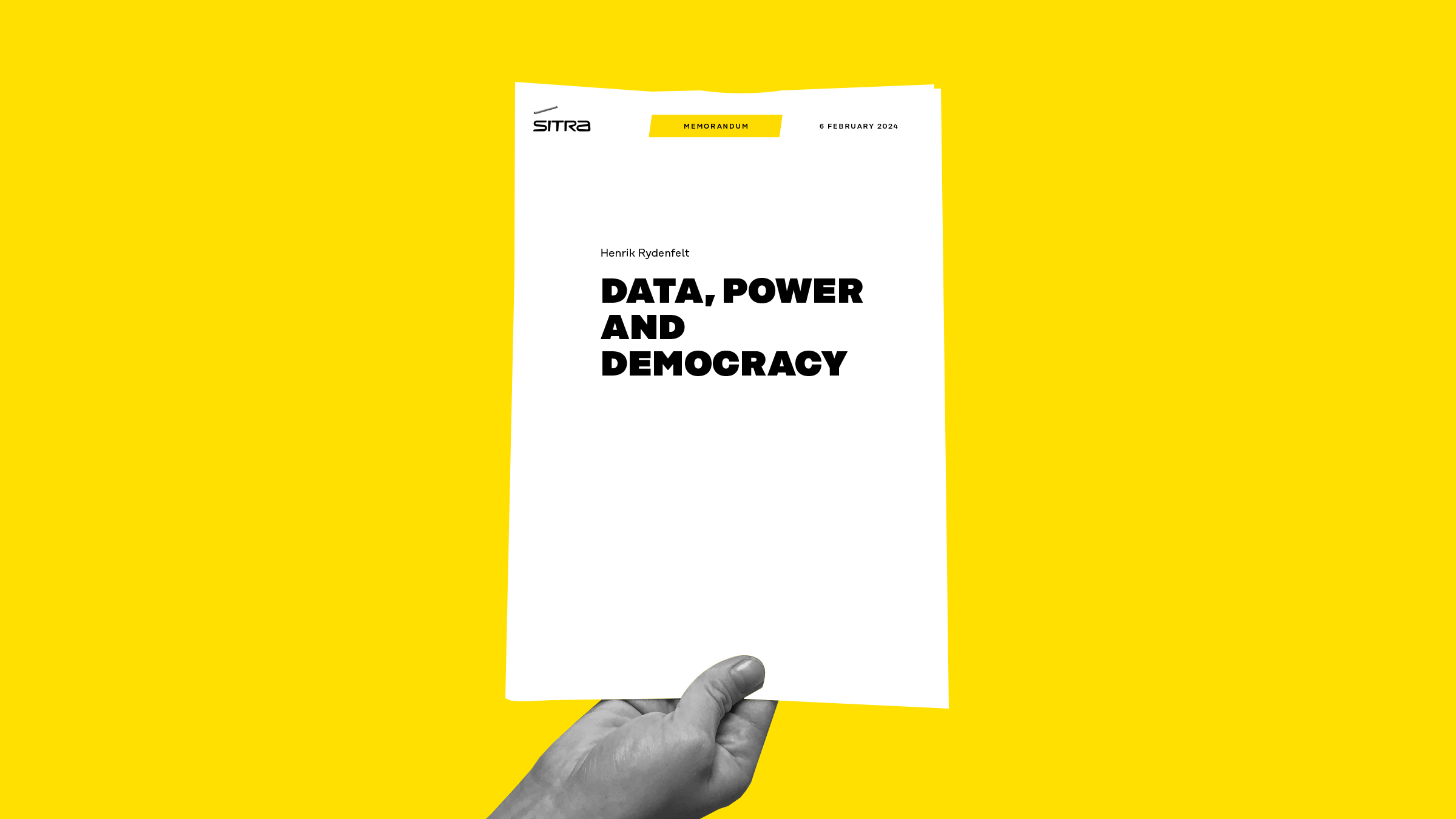
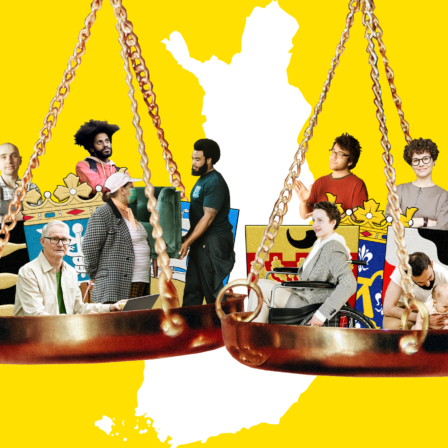
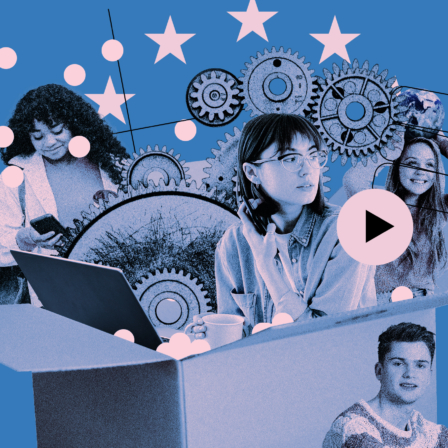


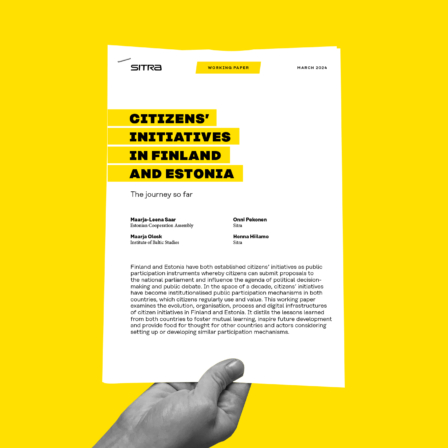
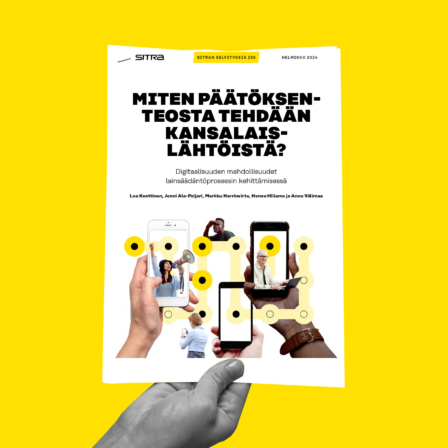
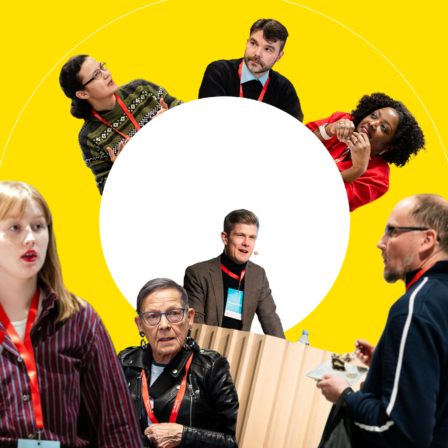

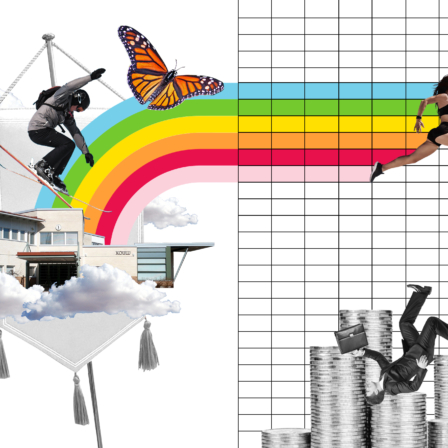







Recommended
Have some more.